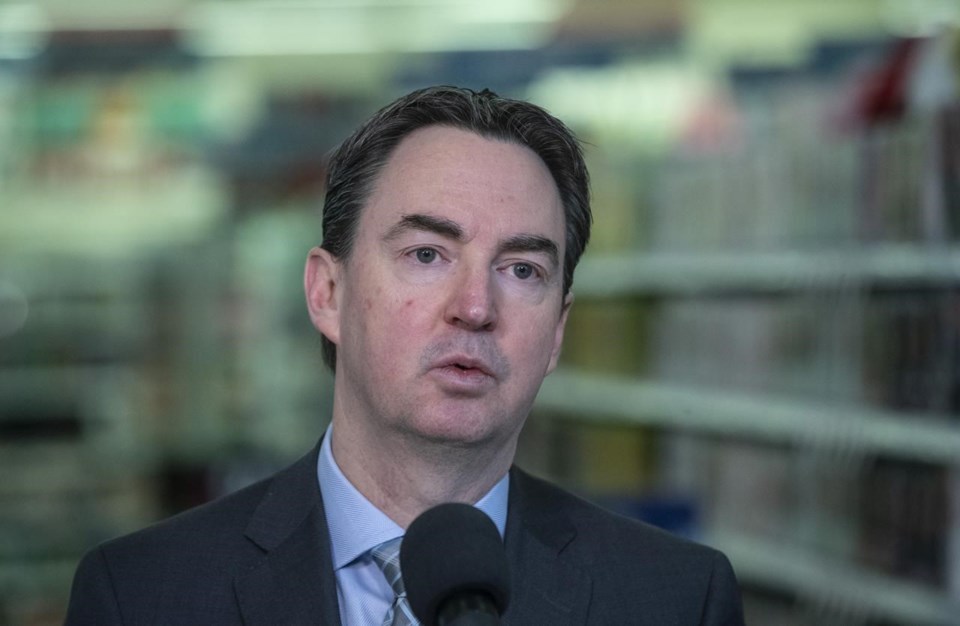EDMONTON — Alberta’s health minister says the new health funding deal with the federal government will dovetail with provincial reforms to the system.
“The additional money will help us accelerate what we’re already doing,” Jason Copping said Monday at a news conference in Calgary.
Copping said the United Conservative Party government is focusing on mental health and addictions, boosting primary care and recruiting more physicians and other front-line health-care providers while transforming more of continuing care to home care.
Earlier Monday, federal Health Minister Jean-Yves Duclos announced Alberta had become the seventh province to sign an agreement in principle with Ottawa on health-care funding.
Under the deal, more than $24 billion is to be spent in Alberta's health-care system over the next 10 years.
That includes $2.9 billion for a new bilateral agreement focused on shared health priorities and $233 million in an immediate, one-time top-up to the Canada Health Transfer to address urgent needs, which include help for pediatric hospitals and emergency rooms, as well as addressing long wait times for surgeries.
The deal also aims to improve access to family health services, including in rural and remote areas and in underserved communities.Â
Alberta joins the four Atlantic provinces, Ontario and Manitoba in signing on to the health-care deal.
The agreements in principle are a first step to completing the $196-billion, 10-year health-care funding proposal that Prime Minister Justin Trudeau made on Feb. 7.
Alberta Premier Danielle Smith said while important details still need to be discussed, "we are confident that Alberta will be provided sufficient policy flexibility under the agreement to deliver in areas of shared interest."
“We’re also glad to see the Government of Canada will work with Alberta to streamline foreign credentials recognition for internationally educated health professionals, and assist with labour mobility for health professionals," she said.Â
Also Monday, Smith released an update from John Cowell, who was hired to lead Alberta Health Services after she fired the governing board in November, citing poor performance during the COVID-19 pandemic.
Cowell said the system is seeing incremental but measurable improvements in key stress areas.
He said emergency response wait times are now averaging 17 minutes rather than almost 22 minutes, and the wait time to see a doctor in an emergency ward has fallen by about 10 per cent.
Cowell said the number of patients waiting longer than the critically recommended times has decreased by more than nine per cent.
He credited the improvements to more staff, more ambulances and triaging 911 emergency calls to other health providers to free up paramedics for the most urgent cases.
“We’ve still got more work to do,” Cowell said.
“We need more runway. The next three months are going to be critical to keep showing you results month on month.”
The Opposition NDP said the numbers aren’t painting a true picture of a health system that remains in dire straits, with 32 hospitals partially closed due to staffing shortages while women in rural Alberta have to travel great distances to give birth.
“What progress they are claiming in emergency rooms is largely due to the seasonal retreat of respiratory illnesses,” said Lori Sigurdson, who is the NDP's seniors, housing mental health and addictions critic.Â
“The truth is the UCP have starved and attacked our health-care system for almost four years,” she said, noting the government tore up the contract with doctors three years ago and fought to cut nurses’ wages during the pandemic.Â
This report by The Canadian Press was first published Feb. 27, 2023.Â
Dean Bennett, The Canadian Press




